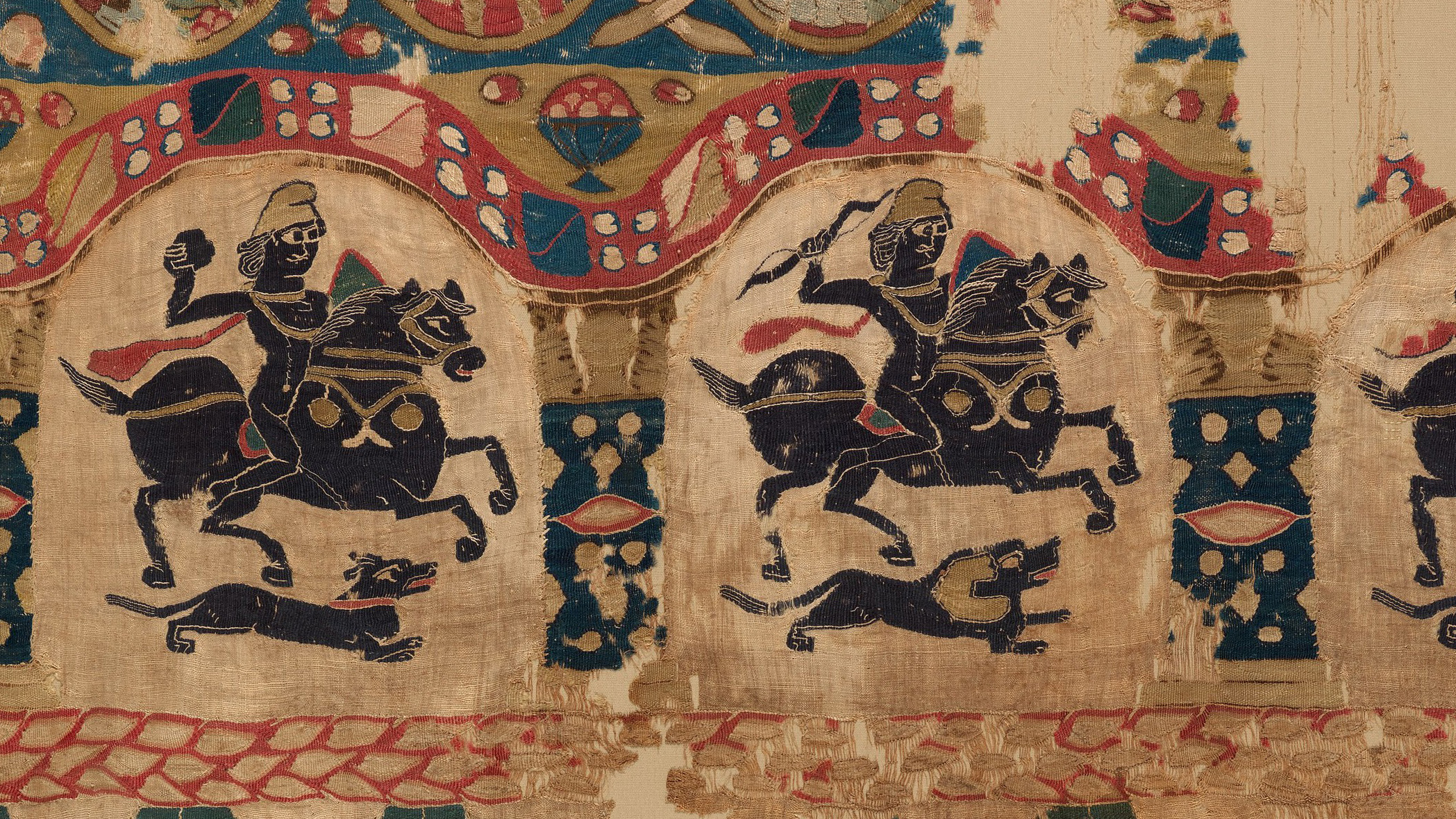Heng, Geraldine. "Premodern race." Throughlines. www.throughlines.org/suite-content/premodern-race. [Date accessed].
Premodern race
What is lost or gained by tracing the history of race backward in time?

A graduate seminar created by Geraldine Heng.
Course description
It’s an old theoretical canard that race and racisms existed in the West only from the Enlightenment onward: that premodern European culture was pre-racial, because its operative prioritizing discourse was founded on religion, and not biological-scientific taxonomic systems of bodily difference, despite the evidence, in medieval culture and history, of institutions and phenomena that we would today identify as racial, were they to recur.
This seminar will ask what is lost or gained by tracing the history of race backward in time. Beginning with a selection of texts on antiquity, we consider a range of medieval texts to ask what racial thinking, racial phenomena, racial institutions, and racial practices are, in their historically-contextualized relations to the following (not listed in order of priority or course procedures): (1) war, conquest, colonization and empire-formation; (2) theories of blood, reproduction, and genealogy; (3) religion, canon law, and church apparatuses; (4) the body and physiognomy (color, biology, etc); (5) sex and gender; (6) slavery, occupations, and economic systems; (7) nation-formation, “nationalisms,” state apparatuses; (8) disciplinary systems of knowledge-power (climatology, geography, ethnography, etc). We will end with student-led critical readings of Shakespearean plays, and a visit from a Shakespearean faculty member, who will discuss The Tempest.
Medieval materials include romances, travel literature, historical documents, manuscript drawings, saints' legends, maps, statuary, and whatever else may be useful. For critical comparison, we will also read an Arabic document in translation, in which race is featured. Our primary secondary text is my 2018 book, The Invention of Race in the European Middle Ages, which will be supplemented by articles, book reports, and presentations. Classicists and early modern studies students in the seminar can contribute substantially to take their period out of parentheses.
Since the purpose of this course is to train graduate students to teach courses on race, and, given our 15-week semester, it’s impossible to include as many texts, in as many disciplines and parts of the world, as I’d like you to read, the book reports/seminar presentations are essential. In-depth reports on texts that you read and present to the seminar will enable your seminar mates to learn what else they should read, to follow their specific interests; your presentations thus contribute importantly to course content.
Requirements
This course runs like a research seminar; students working in any period, discipline, or culture are welcome. Typically, the 15 students around the seminar table enroll not only from English and comparative literature, but also history, classics, religious studies, art history, Spanish and Portuguese, French and Italian, Germanic studies, and Middle Eastern studies. You should expect that your seminar mates will have different knowledges, and different disciplinary assumptions from you. Most will not be medievalists; some will be from other parts of the world. Please understand that disciplinary, linguistic, ethno-racial, and gender/sexual diversity are always part of this course, and adjust expectations accordingly.
Previous knowledge of the European Middle Ages, or languages other than English is not required, but non-medievalists are expected to thicken their understanding of the Middle Ages in a serious and aggregative way, and medievalists are expected to engage with critical and theoretical texts we read with the same degree of attentiveness and commitment they afford medieval texts. Though not required for seminar discussion, possession of other languages, European and non-European, medieval and modern, is an advantage. Those who can read our texts in their original languages (Greek, Arabic, Middle High German, Middle Dutch, Old Norse, Latin, Franco-Italian, etc.) should do so.
Assignment requirements
Two seminar presentations/book reports and a term paper for a letter grade.
Two presentations only for credit/no credit and auditing.
Term papers should be about the length of a conference presentation (feel free to use them for double duty, as actual conference presentations as well).
Alternative projects—such as annotated bibliographies, the creation of course syllabi, digital humanities and multimodal projects, creative projects, etc.—are also possible. Please consult early if you have ideas for formats you wish to pursue.
Course readings
(suggestive, subject to change, and open to negotiation)
- “Airs, Waters, Places,” Hippocrates
- The Vinland Sagas: The Norse Discovery of America (Penguin classics in translation: you will need to buy this book)
- Parzival, Wolfram von Eschenbach
- Roman van Moriaen
- The Book of the Glory of the Black Race, Al-Jahiz
- History of the Mongols, John of Plano Carpini
- Prioress's Tale and Man of Law's Tale, Geoffrey Chaucer
- Hugh of Lincoln (the Anglo-Norman Ballad)
- The King of Tars
- Richard Coer de Lyone
- William of Rubruck’s Itinerarium
- Marco Polo and Rustichello of Pisa’s Devisement du Monde
- The Tempest, William Shakespeare
- a selection of theoretical and critical readings, as well as primary texts, that may be treated in presentations and reports
Further learning
Recommended

Medieval North and East African art
Medieval African art demands to be understood, not in relation to Europe alone, but as part of a wider Afro-Eurasian world. Andrea Myers Achi discusses the interconnection across medieval North Africa and the Mediterranean and Africa’s cultural exchange and influence on medieval art history.





